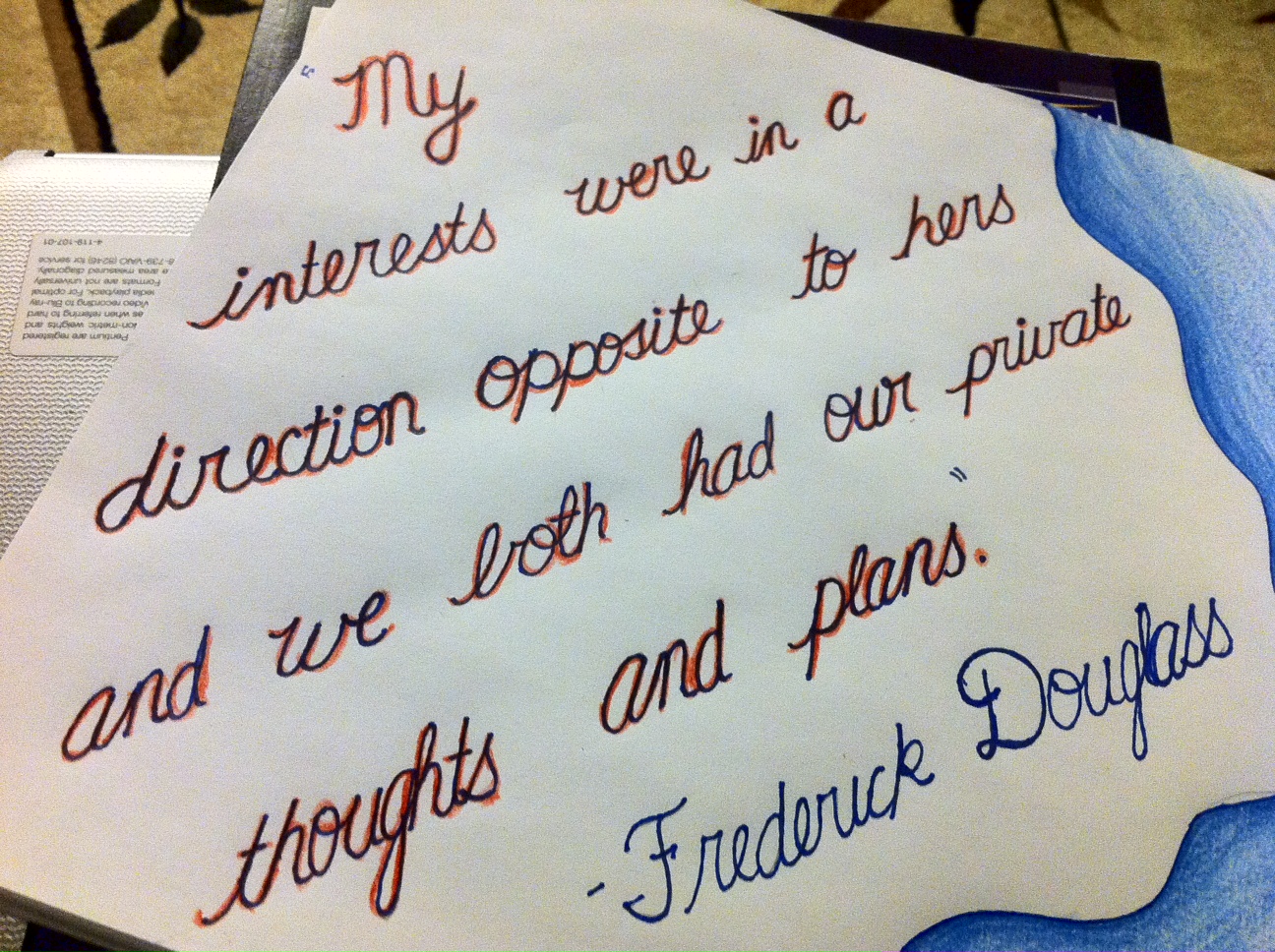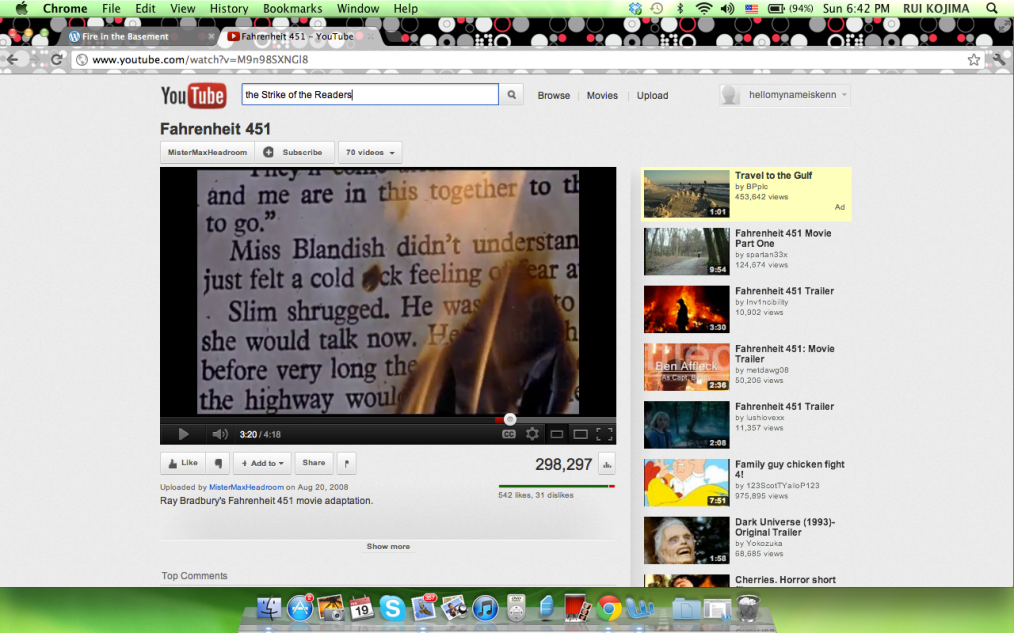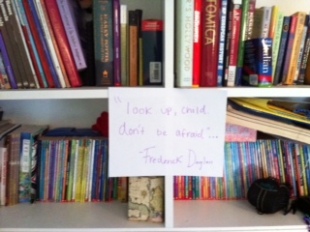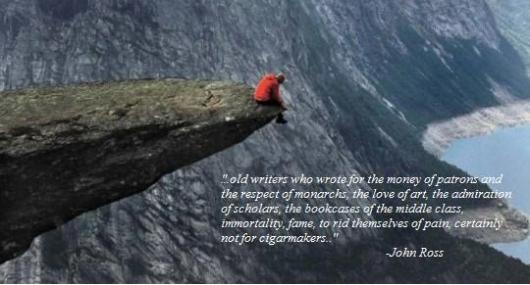
(Click on the image to read the quote by Frederick Douglas)
A student in my other section mentioned that he felt empowered when he started to write for the newspaper at the Queensborough Community College. I had a similar experience when I started to put out short video documentaries about ongoing struggles in society. Media literacy is not very different from traditional forms of literacy – both forms allow us to be heard, to position ourselves, and to encourage others to take action.
In the context of this blog, I want to share the most recent instance in which I became aware that (media) literacy is an empowering tool. My example refers to the immediate environment in which we encounter each other: Hunter College.
I applied to study Integrative Media Arts at Hunter College when I was living in Berlin. The only images I had of Hunter were the ones that were provided on its official website. When I finally came to New York, I was pretty shocked about the ugliness of the building, the never ending bureaucracy, and the persistent dysfunctionality of the restrooms.
It took me some time to discover that Hunter College and other CUNY colleges have a remarkable history of resistance and class struggle. In 1969, Black and Puerto Rican students at City College fought for and won an unprecedented opening of admissions at the City University of New
York that resulted in a radical transformation of the university. The student body doubled within a year and within seven years the almost all-white student body had become majority
students of color.
Read The Struggle for CUNY by Christopher Gunderson to learn more about CUNY’s radical history.
CUNY has always been a place where folks from different backgrounds come to together – not only to study but also to organize against capitalist oppression. The board of trustees – which consists of the “1%” appointed by mayor Bloomberg is systematically raising tuition for students and cutting wages for adjuncts. These budget cuts are a clear attempt to deprive students from low income families and people of color from their right to education. Those who are lucky enough to make it into the system, leave college enslaved by student loans.
Many of you made reference to the Occupy Wall Street protesters in the previous blog assignment. I was surprised that none of you mentioned Occupy CUNY. I strongly recommend to check out the following resources and to find out how to get involved:
The Time for Action is Now – Short documentary on Occupy CUNY
Occupy CUNY News
Written by Martyna Starosta





















